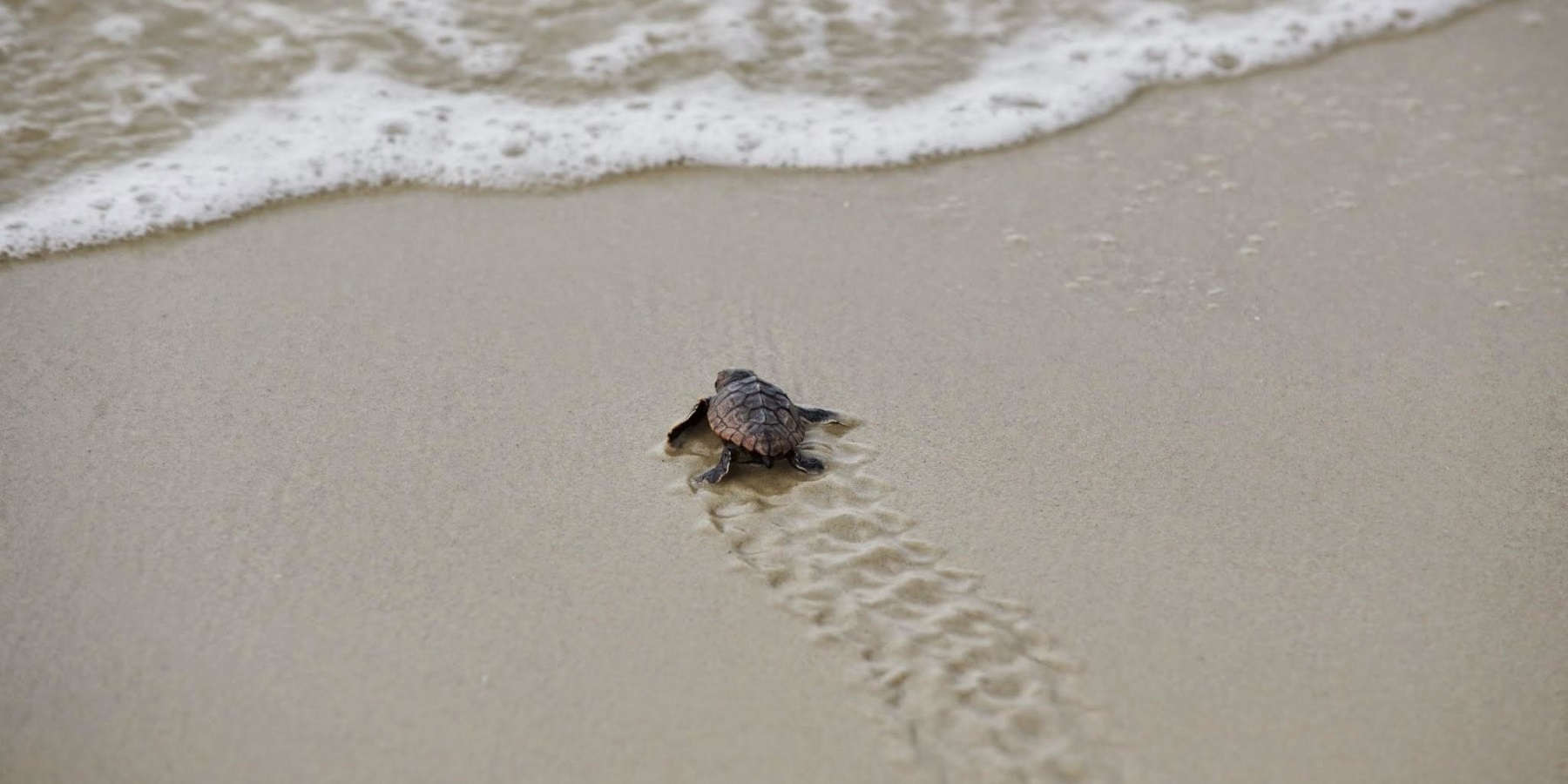A conservation group filed suit asking a judge to stop a federal agency from dredging a Georgia harbor during the nesting season for rare sea turtles that began over the weekend.
The group One Hundred Miles filed suit Friday in U.S. District Court against the Army Corps of Engineers, which plans to end a policy that for 30 years suspended coastal dredging from the Carolinas to Florida during the warmer months when sea turtles are most abundant in coastal waters and lay their eggs on Southern beaches.
Those seasonal windows have been credited with minimizing deaths and injuries to sea turtles by dredges that suck up sediments to clear waterways used by commercial ships. But the Army Corps plans to scrap them after federal scientists last year concluded that sea turtles protected by the Endangered Species Act can likely endure 150 deaths annually from year-round dredging.
Citing concerns by biologists with the Georgia Department of Natural Resources, the federal lawsuit says opening the state’s 100-mile coast to year-round dredging for the first time since 1991 “would almost certainly kill and injure federally threatened and endangered sea turtles.”
“We’re certainly not about to sit back as they come in and endanger Georgia’s sea turtles and throw away nearly 60 years of conservation progress in Georgia,” said Catherine Ridley, a One Hundred Miles vice president who coordinates volunteers to monitor sea turtle nests on St. Simons Island.
Billy Birdwell, a spokesman for the Army Corps in Savannah, said the agency does not comment on pending litigation.
Giant loggerhead sea turtles, protected as a federally threatened species, nest during the spring and summer months on beaches from North Carolina to Florida. Smaller numbers of endangered green and Kemp’s ridley sea turtles lay eggs in the region as well.
Sustained efforts to reduce sea turtle deaths in the water and to catalog and protect their nests on land have been credited with pushing nesting to record levels in the region in 2019. Scientists say the rebound is fragile but encouraging.
Thousands of sea turtles that nest each spring and summer share their coastal habitat with busy seaports in all four states. The Army Corps relies on dredging to remove accumulated sediments and debris that can make shipping channels shallower and less safe to navigate.
They contend that confining dredging roughly to the period between December and March focused too much on sea turtles, while ignoring other protected species such as critically endangered North Atlantic right whales that frequent the same waters during winter.
The Army Corps also expects year-round dredging to help alleviate project delays caused by states competing to hire a limited number of contractors within the same narrow timeframe.
The agency said in March it plans to soon dredge the entrance channel to the Port of Brunswick, likely overlapping with the sea turtle nesting season that typically runs May through August.
The Georgia Department of Natural Resources said the state’s first loggerhead sea turtle nests of the 2021 season were spotted over the weekend on Little Cumberland Island and Sea Island.
The lawsuit filed in Georgia contends the Army Corps violated the National Environmental Policy Act by choosing to end seasonal dredging limits without first conducting a detailed study of the anticipate environmental impacts to sea turtles and other species. It calls the change “a quiet but abrupt departure from three decades of practice.”
The group is asking a judge to stop dredging of the Brunswick harbor until the Corps completes an environmental review.









